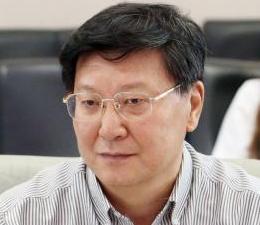At a recent event on the economic outlook for 2015 held by the U.S.-China Business Council, Cui Tiankai, Chinese Ambassador to the U.S., pointed out that the U.S. should focus on five areas to promote China-U.S. economic cooperation, namely, reducing restriction on its exports to China, recognizing China’s market economy status without delay, canceling discriminatory clauses against China in the Acts adopted by the U.S. Congress, strengthening macroeconomic coordination between China and the U.S., and immediately ratifying the reform program on IMF quotas and governance. These are pertinent suggestions that reflect China’s sincere desire to work with the U.S. to enhance the mutually beneficial cooperation between the two sides. These suggestions also encapsulate what needs to be done if the bilateral economic relations are to return to normal and embark on a more benign track of development.
Economic ties figure prominently in the overall relations between China and the U.S., and have been a highlight in the bilateral relations. Since the establishment of diplomatic ties, two-way trade between China and the U.S. has surged from 2.45 billion dollars in 1979 to 555.12 billion dollars in 2014, registering an amazing 226 fold of growth in 35 years. Such consistent two-digit annual increase is unprecedented in the world. In the same period, mutual investment between the two countries grew from zero to over 100 billion dollars in 2014. China has emerged as the biggest debtor of the U.S., purchasing accumulatively more than 1.1 trillion dollars of American treasury bonds. About 70% of China’s 4 trillion dollar foreign exchange reserves are in dollar denominations, which contribute enormously to the U.S. efforts to defuse and overcome financial, debt, and currency crises and keep its economy going. Economic ties have become an important anchor and major external factor driving the growth of bilateral relations. With their economies getting more and more interdependent, the two countries have forged a community of inextricable common interests.
Nevertheless, the level of economic ties between China and the U.S. is still falling short of their status as the biggest economies, commodity markets, and investment destinations in the globe. In 2014, the two countries’ combined GDP and foreign trade accounted for 34% and 24% of the world total, while their two-way trade only made up 2% of the world and 6% of their total foreign trade volume, and their mutual investment was almost insignificant compared with the overall global investment and the total amount of their foreign direct investment. This shows that the economic cooperation between China and the U.S. has yet to reach the expected level due to some obstacles.
Ambassador Cui’s five-point suggestions are mainly about these negative factors and three of these factors have exerted especially serious implications. First, the stern restriction on high-tech exports to China, which directly impairs the economic ties between the two countries, is the main reason behind China-U.S. trade imbalance. Second, the U.S. failure to recognize China’s market economy status inevitably gives rise to economic friction and disputes between the two sides. Third, the U.S. has delayed ratification of the reform program on IMF quotas and governance without any reason. In 2010, to increase the representation and voice of developing countries, the IMF adopted a relevant reform program, including transferring over 6% of quotas (voting rights) to developing countries, of which 2.54 would be given to China. The program is yet to take effect just because it is not ratified by the U.S. The above problems are all caused by the U.S. politicization of economic issues, which stands in the way of smooth development of the economic ties between the two countries.
As economic ties bear on the overall interests of China-U.S. relations, the Obama administration has also realized that these problems do not serve the U.S. interests, and has thus committed on many occasions to reduce its restriction on high-tech export to China, recognize China’s market economy status and ratify at an early date the IMF reform program. Politics, however, has made it difficult for the Obama administration to translate its commitments into action. Only when the U.S. delivers on these commitments can it overcome its weaknesses and fully tap into the enormous potential and space of China-U.S. economic ties, and hence open up bright prospects for bilateral relations as a whole.


